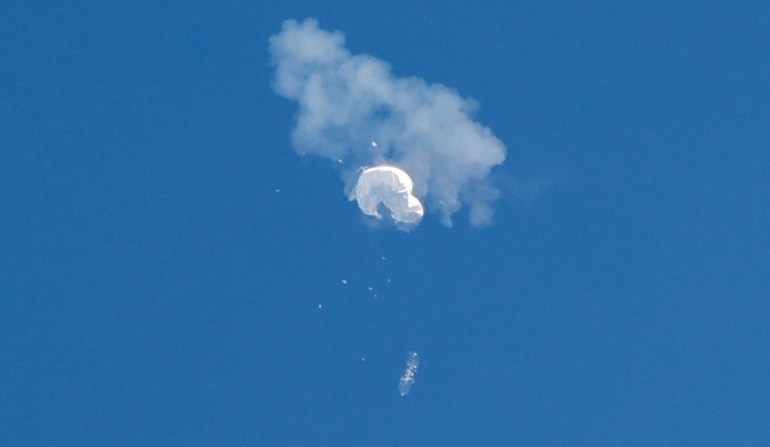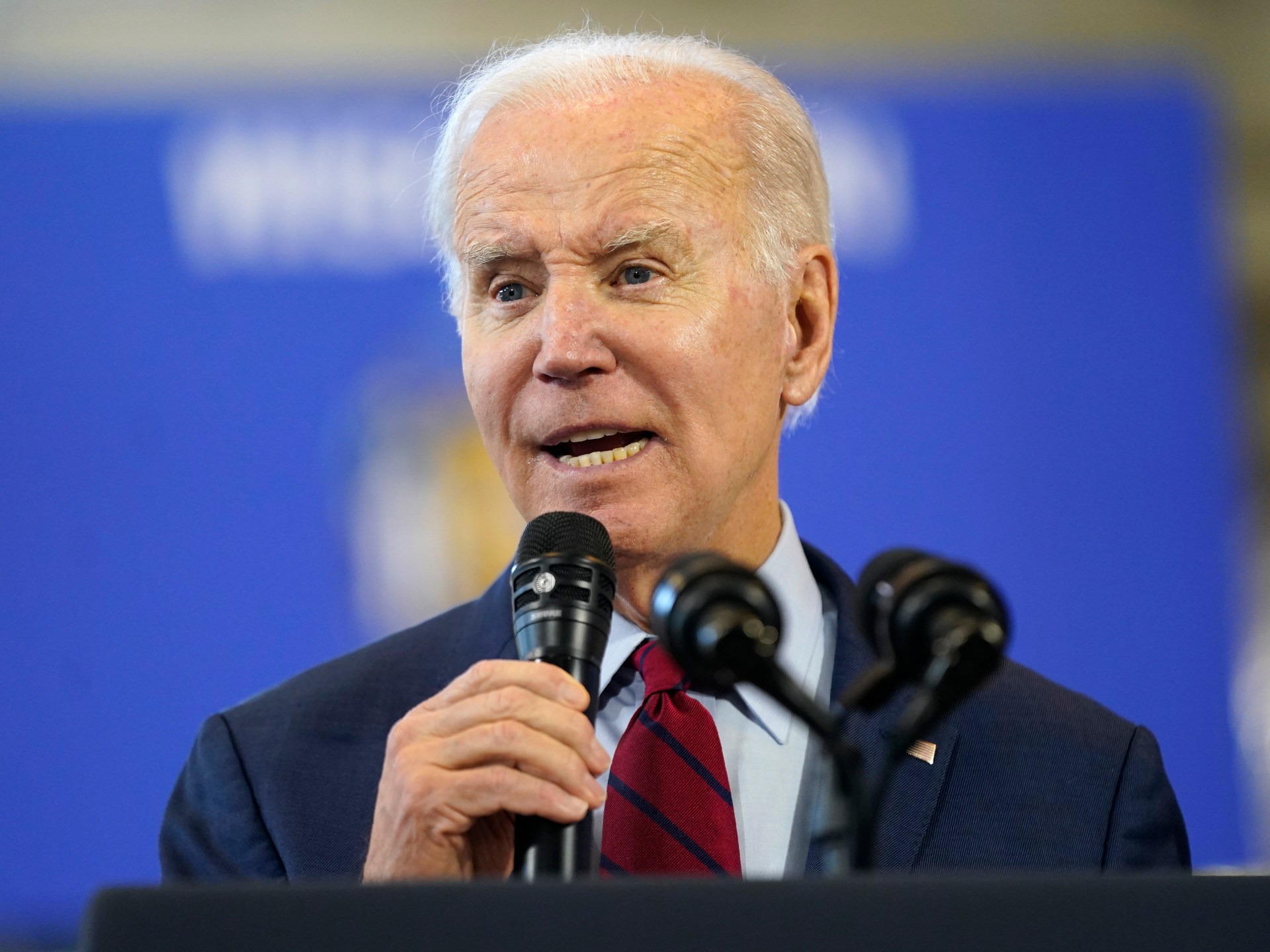Biden says US not seeking conflict with China after balloon saga
The downing of the alleged Chinese spy balloon has caused a diplomatic row between Washington and Beijing.
The United States was not looking for conflict with China despite heightened tensions over last week’s downing of an alleged Chinese surveillance balloon over its airspace, President Joe Biden has told the US broadcaster PBS.
“We’re going to compete fully with China, but … we’re not looking for conflict – and that’s been the case so far,” Biden said on Wednesday.
The sighting of the balloon, which US officials say was part of a spy fleet spanning five continents, has caused a diplomatic row between the two countries, with US Secretary of State Antony Blinken postponing a trip to Beijing.
Blinken has said that the suspected surveillance balloon was “a clear violation of our sovereignty. The top diplomat has said that the US was giving data to allies as it assessed recovered debris.
“We already shared information with dozens of countries around the world, both from Washington and through our embassies,” Blinken said.
“We’re doing so because the United States was not the only target of this broader program, which has violated the sovereignty of countries across five continents,” he told a joint news conference with NATO chief Jens Stoltenberg.

Biden, in his State of the Union address on Tuesday, said that his orders to shoot down the balloon showed that the US would not hesitate to act when needed.
White House Press Secretary Karine Jean-Pierre, speaking separately to reporters on Air Force One, described the balloons as part of a fleet and said they had been spotted around the world for several years.
A huge white balloon carrying sophisticated equipment traversed the continental US last week before Biden ordered the military to shoot it down just off the east coast in the Atlantic.
China denies it was a surveillance balloon
China insists that the balloon was merely conducting weather research, but the Pentagon described it as a high-tech spying operation. The balloon floated at an altitude far higher than most aeroplanes and crossed directly over at least one sensitive US military site.
China, which voiced regret about the air intrusion but later denounced the US decision to down it, responded to Biden that it would also “firmly defend” its interests.
Meanwhile, the NATO secretary-general, whose visit to Washington followed a trip to Japan and South Korea, said the balloon showed the need for countries across the alliance to protect themselves.
“The Chinese balloon over the United States confirms a pattern of Chinese behaviour where we see that China over the last years has invested heavily in new military capabilities,” Stoltenberg said on Wednesday.
“We’ve also seen increased Chinese intelligence activities in Europe. They use satellites, they use cyber and, as we’ve seen over the United States, also balloons. So we just have to be vigilant,” he said.
Stoltenberg also issued a new warning that China was drawing lessons from the war in Ukraine, which NATO countries have been supporting as it fights back Russian invaders.
“What happens in Europe today could happen in Asia tomorrow,” Stoltenberg said, pointing to China’s pressure on Taiwan, the self-governing democracy claimed by Beijing.
In the PBS interview, the US president also said that Chinese President Xi Jinping had “enormous problems”, including “an economy that is not functioning very well”.
Beijing on Thursday condemned Biden’s comments, saying the remarks were “extremely irresponsible”.
After a brief warming after a November G20 meeting between Biden and Xi, US-China relations have cooled following the appearance of the alleged spy balloon.




